Kowloon offers halal‑certified options for every craving Muslim travellers!
Top 8 Muslim Destinations to Discover Islamic History
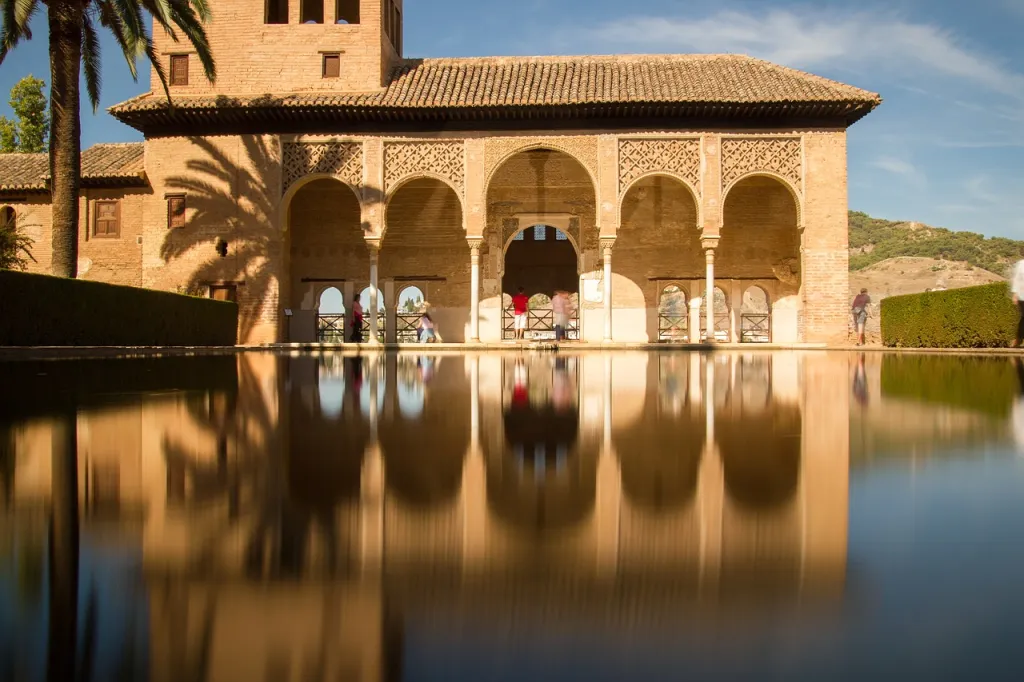
The Islamic world is home to some of the world’s most beautiful landscapes and sites which provide stunning views that are bound to leave a lasting effect on tourists. In this article, we will look at the top eight destinations in countries with extensive Islamic history that are a must-see for travelers who love nature and want to see the world from a different perspective.
Whether you’re a seasoned traveler or just getting started, these places will provide you with unforgettable experiences filled with breathtaking landscapes and a fonder understanding of the rich cultural history of Islam.
1. Petra, Jordan
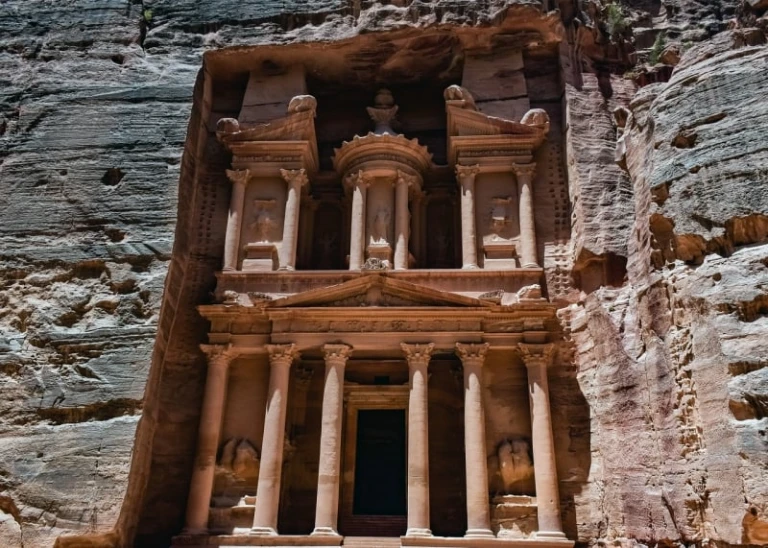 Image credit: Dimitris Vetsikas
Image credit: Dimitris Vetsikas Also known as the Rose City, Petra is a stunning ancient city carved into red sandstone cliffs. It is home to some of the most spectacular views the human eye can witness. Petra is a popular archaeological site and has a history dating back to 300 B.C. when it was the capital of the ancient Nabatean Kingdom.
One of the most iconic views in Petra is the Treasury, also known as Al Khazneh, which is a towering temple carved into the rock face. This masterpiece of ancient engineering is illuminated by the intense sunlight of the Middle East, casting a warm glow over the surrounding cliffs which creates a dramatic contrast with the deep blue sky.
The best time to visit Petra is typically between September and November and from March to May due to the ideal weather. During this time, temperatures are mild and the skies are clear!
2. The Blue Mosque in Istanbul, Turkey
 Image credits: Omar Mahmood
Image credits: Omar Mahmood Istanbul is home to some of the most astounding views and one of the most prominent ones of all is The Blue Mosque located. The Blue Mosque, also known as Sultanahmet Mosque, is one of Istanbul’s most iconic landmarks and a must-visit destination for travelers interested in Islamic architecture and history.
Located in the heart of Istanbul’s Sultanahmet District, this stunning mosque is known for its intricate tile work and vibrant blue dome, which provides a striking contrast against the city’s skyline making it a highly Instagram-able view.
The mosque was built between 1609-1616 by the Ottoman Sultan Ahmet I, and is considered one of the most significant examples of traditional Ottoman architecture. The mosque’s interior is covered in more than 20,000 hand-painted ceramic tiles, which feature intricate floral and geometric patterns, as well as calligraphic inscriptions from the Holy Qur’an.
The best time to visit Istanbul is typically from April to June and from September to November when the weather is rather mild. Moreover, if you’re one to avoid crowds and really feel the inspiration the architectural wonder has to offer in peace, the best time to visit would be early morning or later in the evening when it’s relatively less crowded.
3. Medina of Tunis, Tunisia
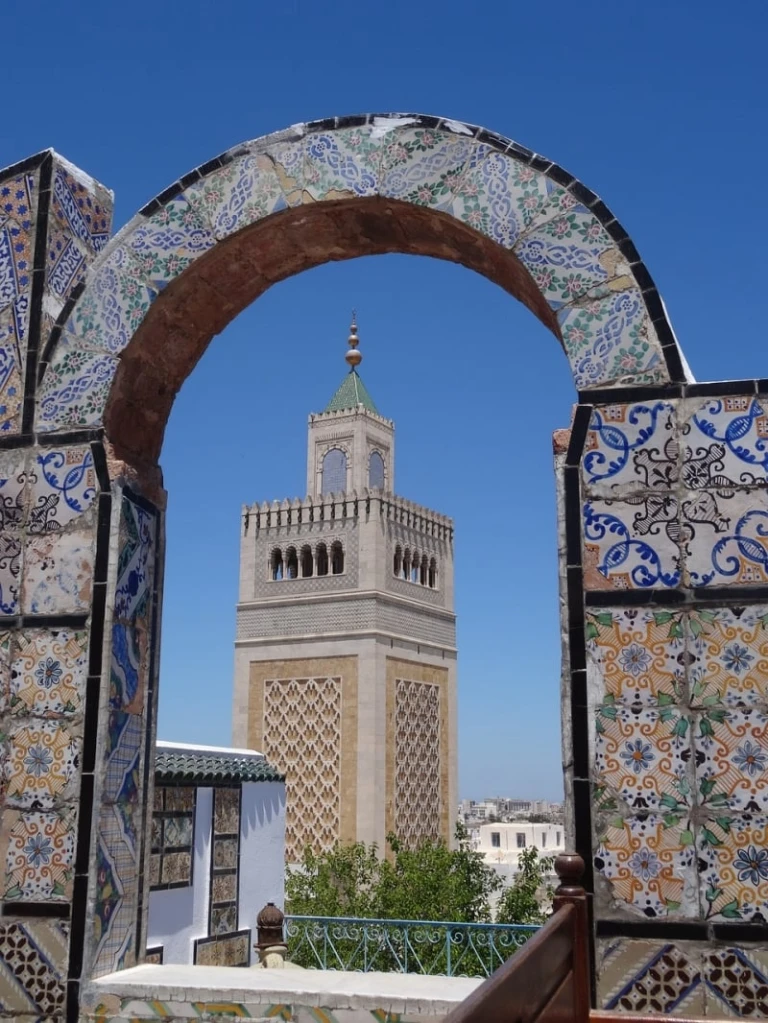 Image credits: aliciacharlotte
Image credits: aliciacharlotteThe Medina of Tunis is located in northeastern Tunisia and has been a UNESCO World Heritage Site since 1979. The walled city was established in the early 7th century and holds great Islamic heritage as it encompasses a variety of different mosques, souks (markets), and traditional bathhouses.
The city has great significance as it was the center of learning back in the Golden Age of Islam. It also provides a beautiful view of its ancient architecture and vibrant culture. The narrow, winding streets with intricate carvings and colourful doors provide a magnificent view of the city and are a must-watch for tourists.
The Medina of Tunis is a unique and valuable example of Islamic architecture and history, and it continues to be a popular tourist destination for those interested in Islamic culture and heritage. One of the best times to visit the place is during the spring months of March to May or during the autumn months of September to November.
4. Alhambra in Granada, Spain
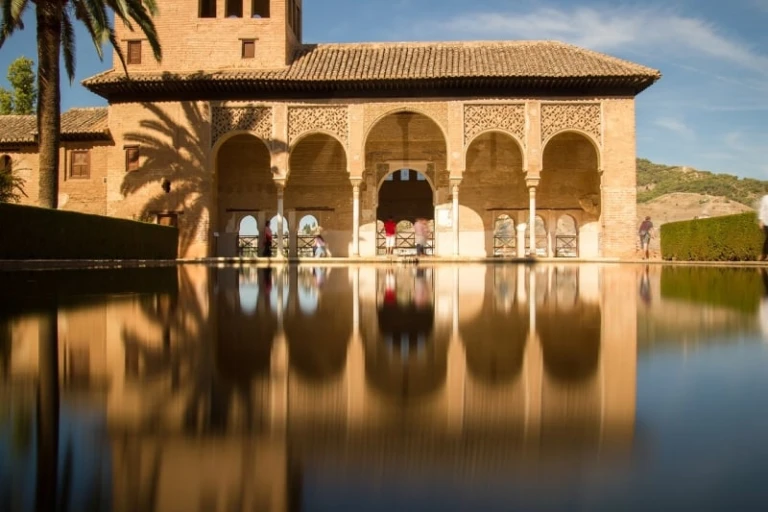 Image credits: granagramers
Image credits: granagramers The Alhambra Palace in Spain is a peak testament to the Golden Age of Islam as the Muslim world stretched all the way to Spain from the 9th century until the 15th century. The Alhambra Palace provides stunning views and is an architectural beauty. One of the highlights of a visit to the Alhambra Palace is the Mirador de San Nicolas, a viewpoint that offers breathtaking views of the city and the neighbouring hills.
Spring and fall are some of the best times to visit Granada and the Alhambra Palace is a truly top destination for tourists interested in Islamic history, architecture, and breathtaking views.
5. Al Balad, Historic District of Jeddah, Saudi Arabia
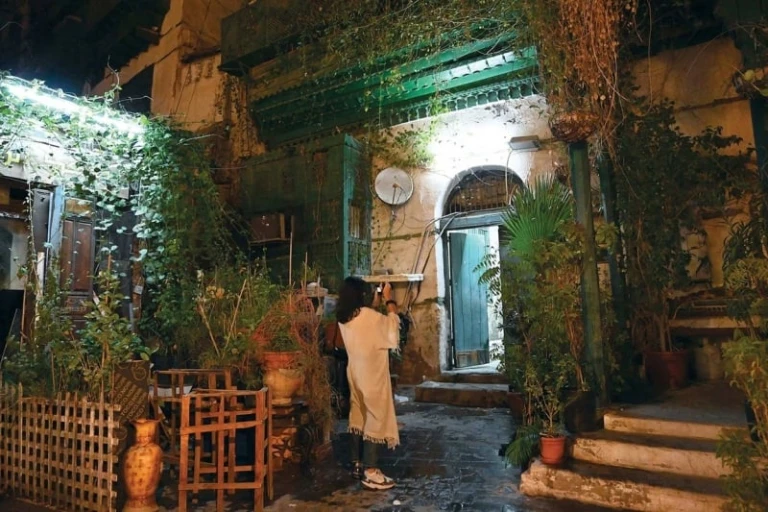 Image credits: Visit Saudi
Image credits: Visit SaudiAl Balad, which is also known as the historic district of Jeddah, is another UNESCO World Heritage Site and is home to rich Arab and Islamic culture with its narrow, winding streets lined with traditional buildings and historic landmarks.
Al Balad is a significantly charming and vibrant area located in the heart of Jeddah, Saudi Arabia, and is also very famous for its street food. The area is one of the oldest areas in the city and is renowned for its spectacular views of Islamic architecture and culture. The traditional souk (market) of the historic district is also said to be visited by the Prophet Muhammad making it a highly significant Islamic tourism site.
It’s best to visit Jeddah during the winter period of December to March in order to avoid the scorching Middle Eastern heat. Al Balad is a must-visit place for tourists interested in history, Islamic culture, and of course, the savoury street food shawarma for which the historic district is quite famous.
6. The Blue City of Chefchaouen, Morocco
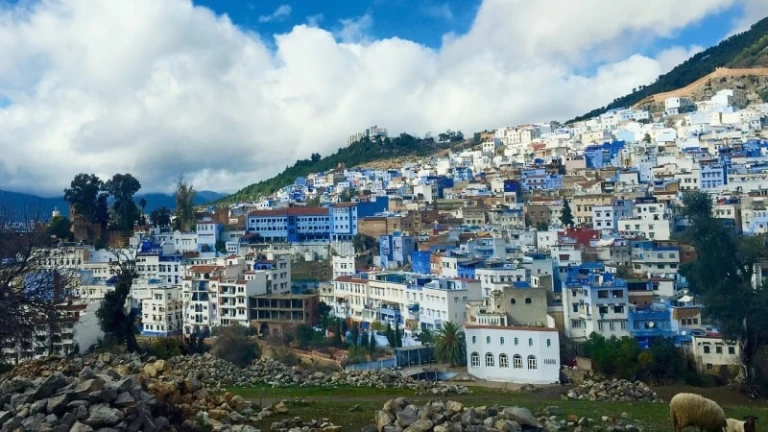 Image credits: eyw2008
Image credits: eyw2008 The vibrant Blue City located in the Rif Mountains of Morocco provides beautiful views of stunning mountain ranges. The city was established in 1471 by Moulay Ali Ben Rachid as a base to defend the Muslim ethnic group Berbers against an attack from the Portuguese. The city has in-depth history and deep Muslim and Jewish heritage as the city was also home to Jews who settled here from Spain in the 1490s to escape persecution.
The city’s traditional architecture is blue in colour which provides an exhilarating view of the city giving a very Mediterranean-European vibe to the destination. The best time to visit the Blue City is during the spring and autumn period when hiking trails around the city can also be explored which provide an even more breathtaking view of the destination.
7. The Wadi Rum Desert, Jordan
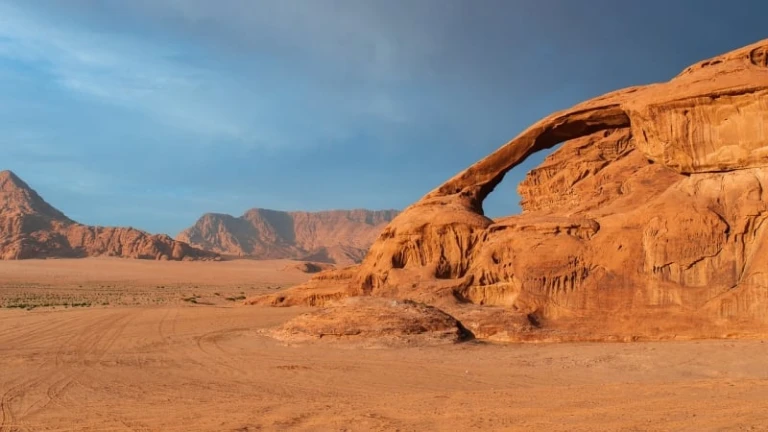 Image credits: Christel
Image credits: Christel The Wadi Rum is a vast desert landscape dotted with towering sandstone cliffs, Bedouin camps, and incredible stargazing opportunities for tourists. In addition to that, the place also has significant Islamic history as the place is said to be mentioned in the Holy Quran where it is described as having ‘lofty pillars’.
The unique geology of Wadi Rum which includes sandstone mountains, narrow canyons, and vast expanses of red sand creates a stunning contrast with the bright blue sky, subsequently providing spectacular views for tourists and a unique photo-capturing opportunity.
The best time to visit Wadi Rum is between October to April, when temperatures are mild and the skies are clear, making it the perfect time for outdoor activities and exploration.
8. Bukhara, Uzbekistan
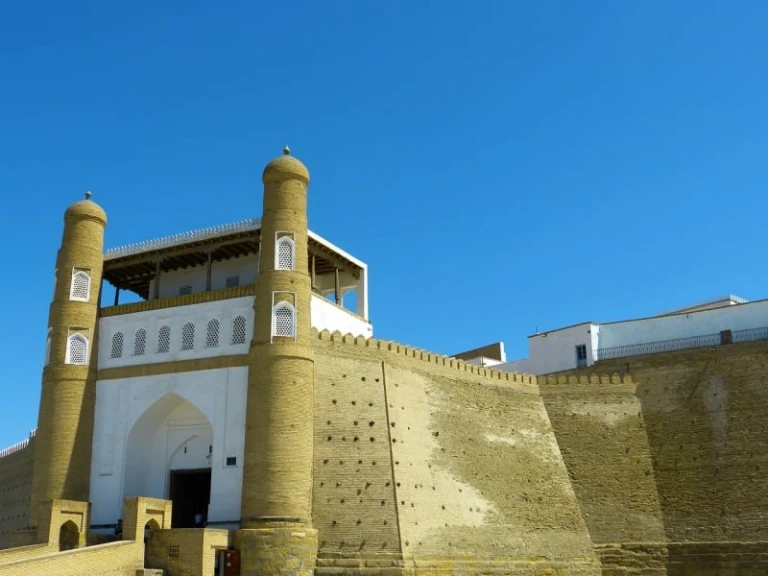 Image credits: LoggaWiggler
Image credits: LoggaWigglerBukhara was a significant cultural and economic center of the Asian and Islamic world and was part of the ancient Persian Empire. The city served as a major hub for the Islamic Caliphate in the eighth century and the city offers sensational architectural views of and encompasses rich history.
The Ark Citadel is one of the prominent tourist spots in the city which provides panoramic views of the city from the ancient fortress. Similarly, the Kalon Minaret is another architectural wonder which offers stunning views of Bukhara from the top of the minaret.
Moreover, the Chor Minor Madrassa with its turquoise-tiled dome and four minarets is one of Bukhara’s most recognizable landmarks and provides further breathtaking views for tourists. It is recommended to visit Bukhara between April and October where tourists will also be able to experience unique cultural festivals such as Persian New Year.
In conclusion, visiting destinations with rich Islamic history and spectacular views can be a truly enriching experience. Whether it’s the breathtaking beauty of the Alhambra in Granada or the stunning architecture of the Blue Mosque in Istanbul, these destinations offer a unique blend of history, culture, and scenic beauty and are bound to leave a lasting impression on history buffs, architecture enthusiasts, or travellers simply in search of breathtaking views.
So pack your bags and get ready to explore the world and discover the best that Islamic history and nature have to offer!
Published at
About Author
Azmi Anees
Subscribe our Newsletter
Get our weekly tips and travel news!
Recommended Articles
15 Best Halal Foods in Kowloon, Hong Kong Top Muslim-Friendly Things to Do at The Newest Antara Genting Highlands It’s located between Peacehaven Campsite and Cradle Rock Genting Highlands, along Jalan Utama Genting Highlands
10 Best Halal-Friendly Destinations in The Philippines for Muslim Travellers Not just Boracay...
10 Best Places for Muslim Travellers to See Tulip Festivals in 2025 Fun Fact: Tulips didn’t actually come from the Netherlands but Türkiye!
10 Halal Anime Food Guide for Muslim Travellers in Japan Muslim-friendly versions of popular anime dishes across Japan!
Latest Articles
Best Places to Stay in Kyoto 2026 : 10 Best Ryokan Hotels with Traditional Japanese Style the ultimate way to feel Kyoto’s old-world charm
Taiwan Cherry Blossom Guide 2026: Top 10 Spots, Forecast, & Hot Springs cherry blossom season is back!
The Ultimate Guide to Nakameguro Cherry Blossom Season: Tokyo’s Iconic Pink Wonderland must-visit when you're in Tokyo during sakura season!
The Ultimate Guide to the Kawazu Cherry Blossom Festival You don’t have to wait that long to see Japan turn into a pink wonderland!
10 Most Instagrammable and Soul-Soothing Resorts in Yogyakarta for Your 2026 Retreat Experience luxury and serenity.

